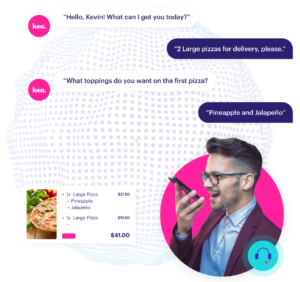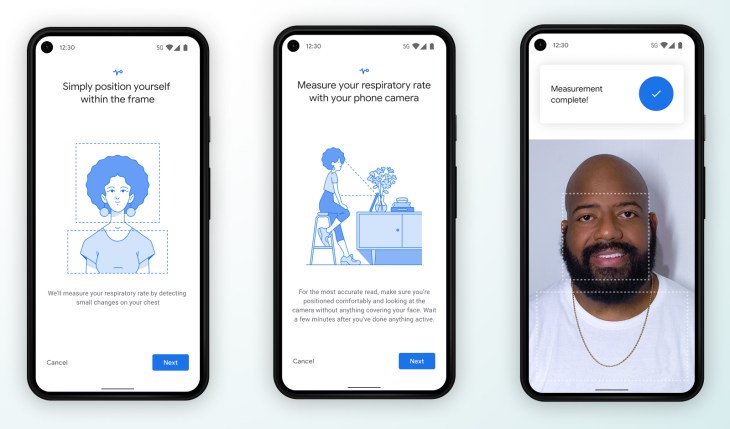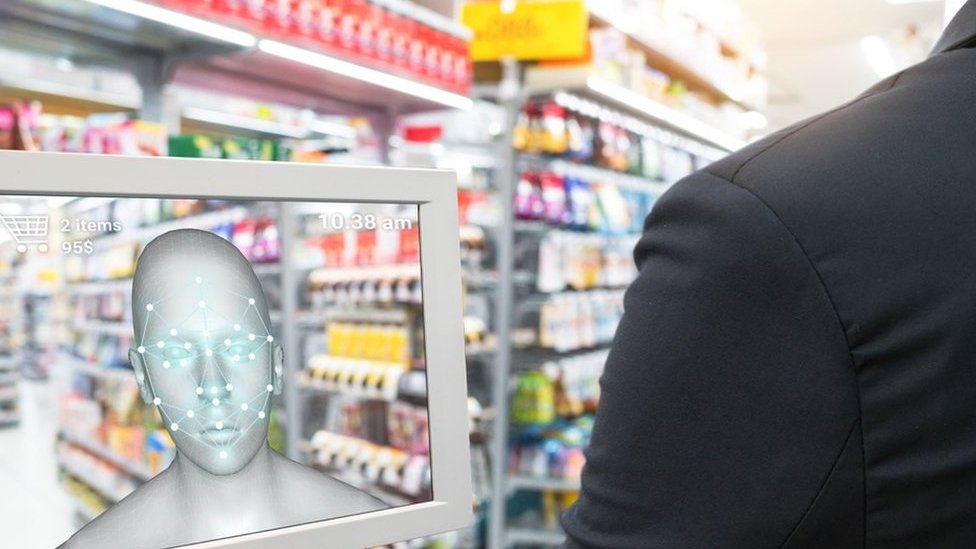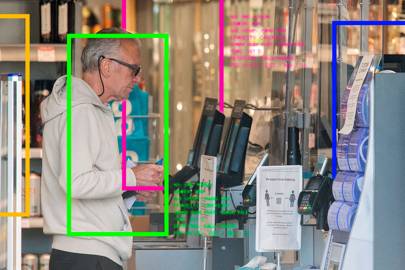Reading Time: 3 minutesA new startup “Kea” invented a program which is using artificial intelligence. It will give restaurants an opportunity for upgrading taking orders.
“Today, Kea is announcing that it has raised a $10 million Series A led by Marbruck, with participation from Streamlined Ventures, Xfund, Heartland Ventures, DEEPCORE, Barrel Ventures and AVG Funds, as well as angel investors Raj Kapoor (chief strategy officer at Lyft), Craig Flom (who was on the founding team at Panera Bread), Wingstop franchisee Tony Lam and Five Guys franchisee Jonathan Kelly.” 1

Often restaurants do not manage to hire staff for less important tasks, which one of them could be answering the phone. Most of us experienced (especially in pandemic times) calling the restaurant and waiting unnecessary amount of time waiting for someone to take our order. Founder of Kea – Adam Ahmad seemed to find the solution for this problem.
The program which Kea introduced is based on an idea, in which the “virtual cashier” will do the initial intake with customers and process the orders. If needed, it can also bring a human employee. It looks like a perfect idea, but the experience might not be as satisfying as the company describes it. Often banks or private health care providers are using such systems on daily basis, and sometimes customers have to struggle with problems while using it. However, Ahmad claims, that most of the existing systems are not smart, and Kea’s AI do not have such problems, as it is strictly focused on ordering food in restaurants.
As customers, we all know that most of the programs that are making our lives harder, in general, should work perfectly, instead, they do the opposite. How Kea will manage the problems with such service if other companies seem to still could not improve it? Unfortunately, there is no specific answer provided by the company yet.

Adam Ahmad says: “We’re doing a very closed domain,”, “In the pizza world, there are only a couple thousand permutations. We’re not innovating for the whole dictionary — it’s a constrained model, it’s a menu.”
On the official website of Kea (https://kea.ai/) potential customers have the opportunity of checking the demo by themselves.
Some of the restaurants that are already using the system are Papa John’s, Donatos and Primanti Brothers. Overall, those restaurants claim that they recommend the system and it actually saves them (on average) 10 hours of work per week. This provides a 23% increase (on average) order size. The companies goal is to bring Kea to 1000 restaurants in the United States across 37 states, which might happen in 2021.

The idea is great, but would it actually help us, as customers, or will it only help restaurants with the problem of understaffing? And most importantly, if more companies will introduce such programs, wouldn’t that mean that fewer people are hired? Every time the Artificial Intelligence is used for new tasks, some people might lose their jobs. In this case, it seems to be a perfect solution for companies, which either way would not hire extra people for such a specific task such as answering the phone. However, what will happen to people who have such a position, and the company will decide to switch to the system using AI?
1.Techcrunch.com. 2020. Techcrunch Is Now A Part Of Verizon Media. [online] Available at: <https://techcrunch.com/2020/11/20/kea-series-a/> [Accessed 24 November 2020].
sources:
Techcrunch.com. 2020. Techcrunch Is Now A Part Of Verizon Media. [online] Available at: <https://techcrunch.com/2020/11/20/kea-series-a/> [Accessed 24 November 2020].
ZoomInfo. 2020. Kea Cloud – Overview, News & Competitors | Zoominfo.Com. [online] Available at: <https://www.zoominfo.com/c/kea-cloud-inc/466259157?__cf_chl_captcha_tk__=6b75ea5736cb51a161fc8ecb085d9e25e0c62165-1606224631-0-AVtb4mRfwyk89cDA5xcoRp8vxqgBIlff8bFxUokfL81KENk9Og00FekGAkKGSoyz-F9EAsa3mjGuDwA-0gJtdOB15S8dCvmSPiKfD8eL4weqmiFBqdPFPHqldQcNFSIwlMXa2IwSPSyxZze5088vDlLlsPCcve4ZqiHGiwdJpUMx-oF_GunKIyg51RPxAwN4MWICGB-KC_KoWcNElTXJBqsn6ahu67y_XiqbDtNKdX8HGfmqhi7H4U_o8G2U11Uh8hYQnb4AdIxhBxxy_qKhvk12ZY4MAc-BtGIjLM7eVOcwaqcPFTJaHEUERf7KXVEpP8sD6n9tyHGS0JhOYcUwN6uv7W2bVwIH4zghIGjjBAhW35e4DddvXnI0mVIbDEBvmxNXJXBxGSb68hTCXDqJtoPj_IR4t_FZbGhY6BWyQwE_b8gAofhFJ5cvLu_FrWR6DE7DfDPlOgjNDstqDW6zOSTrG2qOMbTyCrdbVvpqdUdHPRMEKHZc6DxSxLoqVWAzPhtYRXRCtED_h7Mp-BgLQ2N4zEObRgTpOkhaRvOOdNghCEpHh3y8SpeEUxRyv_miS3O7SFryi0kfUb6kZo48mi8pFxdFbboje6kgt_OBcUZE> [Accessed 24 November 2020].
Kea.ai. 2020. Kea.Ai. [online] Available at: <https://kea.ai/> [Accessed 24 November 2020].

/cdn.vox-cdn.com/uploads/chorus_asset/file/22279429/Google_Fit_measuring_heart_rate.gif)


 privacy issues. Privacy International have questioned whether the data is shared with the police and about the legality of the technologies which are being used in the stores.
privacy issues. Privacy International have questioned whether the data is shared with the police and about the legality of the technologies which are being used in the stores.



